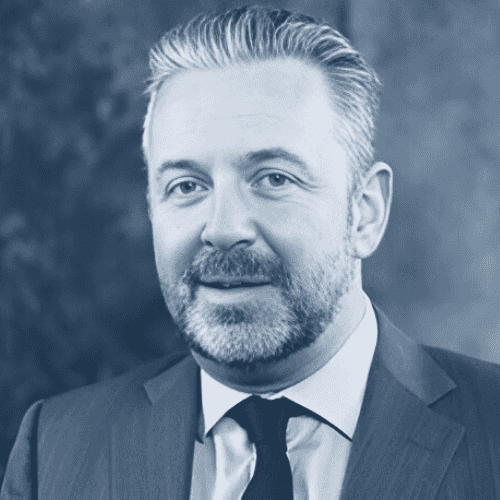OSEA Manager on Active Advantages
September 14, 2023
Harbor Capital Advisors and C WorldWide Asset Management last year launched the Harbor International Compounders ETF (OSEA).
OSEA seeks to provide compelling returns. The active ETF focuses on companies that are believed to be able to sustain consistent growth levels well into the future.
In the second part of a two-part interview with VettaFi, C WorldWide portfolio manager Peter O’Reilly discusses the opportunities using active management (and challenges with passive ETFs), and how C WorldWide looks at ESG, or Environmental Social and Governance.
Active Management Advantages, According to C WorldWide
Elle Caruso, staff writer, VettaFi: OSEA has performed well compared to its benchmark since its inception in September 2022. In part one, you talked about identifying themes and trends, you cited some specific examples of how C WorldWide looks at opportunities. You have this disciplined, one-in-one-out approach to portfolio construction, with OSEA holding a maximum of 30 companies at a time. Can the potential success of OSEA be attributed to active management? What opportunities are you able to capture with this distinct approach that passive strategies can’t replicate?
Peter O'Reilly, portfolio manager, C WorldWide: Well, I think the most important thing that you just mentioned there is passive strategies. So passive strategies are useful for replicating the market. But within that market, there are a lot of companies. What we believe is that over the longer term, the true way to seek to add value is to be able to find distinct companies, which we believe will compound at a faster rate than the market for a prolonged period.
Our philosophy is that earnings over the longer-term drive share prices. If we can produce a portfolio of distinct compounders, a maximum of 30 companies that can compound at a better rate than the market over time, that will potentially lead to outperformance and that creates a focus on companies that have a survivorship bias.
Limitations of Passive Strategies
When you buy a passive strategy, you are buying a lot of, for lack of a better word, deadwood companies that have gone ex-growth. Companies that may be structurally challenged. Companies that may have an excess of leverage or may have mortgaged their future by sort of very short-term driven actions. And then just areas of the market sector. Do you want to own Japanese banks? European banks? Do you want to own a lot of these companies that have just been poor business models over the last decades? Do you want to own European energy companies that have not been able to make a profit whether the oil price is higher or lower?
We can naturally exclude these companies straight away. Whereas if you buy a passive strategy, unfortunately, it's a job lot. You get everything. There's no discrimination, you just get the market index.
C WorldWide’s Approach to Sustainability and ESG
Caruso: How do ESG and sustainability integrate with OSEA?
O'Reilly: I suppose the background is that we're based in Scandinavia. Our largest client base is Scandinavian, our second largest client base is superannuation funds in Australia. Both of these are very keen on the whole area around the ESG space, I suppose as you would say. We have been actively focusing on this for quite some time. But a lot of that is from a reporting standpoint.
We own companies for a long time – our average holding period of seven years. We make maybe two or three changes a year. The longest company that we've held in another C WorldWide portfolio has been in the portfolio since inception, which is over 30 years ago. We own a company called HDFC Bank, which we've owned for over 18 years, so going on two decades. We don't flip and turn our companies. When we buy our companies, we are investing in companies, we are not trading stocks. With that in mind, it's important to understand that we believe the companies are safeguarding and future-proofing their businesses.
Let's just take a very simple example. Nestle, which is one of the largest food companies in the world, came out about three years ago and announced to the market that it was going to have to take some exceptional charges to put in place sustainability policies to reach its targets by 2025. It's not necessarily, because it's trying to be a good global citizen. The reality is that we feel it wants to future-proof its business. It makes things such as chocolate, which I'm sure we're all familiar with. Consumers today do not think it's cool to sell chocolate that has been made by children who are exposed to slave labor.
Considering Sustainability Seeks to Help Relate to Clients
You need to clean your supply chain. Not just your supply chain, but your supplier’s supply chain, and their supplier’s supply chain. Unfortunately, things like cocoa are not grown in places where work labor laws are very developed such as Ireland, Denmark, or the United States. It tends to be in emerging economies, where maybe the attention to labor rights is not what it might be in developed markets.
Secondly, tomorrow's consumers do not want to consume sparkling water or coffee capsules where the packaging will wind up in the ocean and on someone's beach polluting the place. They don't want to know that their products were made creating a load of carbon emissions or overusing water.
It's not about being a “tree hugger,” it's just about being practical. In the same way as when seatbelts were put in cars, if you ignore the future, you are mortgaging your future. If you're mortgaging your future, you will not be able to deliver the type of compounding that we're looking for.
How the Perception of ESG Has Evolved
Ten years ago, when we started on our journey, the whole idea of ESG and sustainability was very much about exclusion and inclusion But I think the market is becoming much more sophisticated now. It’s now discriminating between companies in the same sector, where one is taking the necessary steps to protect its future and make sure it's using energy in the right way, it’s using resources in the right way. It has the right human staffing policies, etc. It's not really making a social stance as much as it's just recognizing where it sees the future going. As I said, if we're going to own a company for two decades, we want to make sure that they are not mortgaging their future in the short term, trying to avoid this.
We personally think that people won't be talking about ESG in 10-15 years. It'll just be considered in the same way as you think about the invested capital and how you think about cash flow. It'll just be measured on how it seeks to protect your future.
Benefits of Challenging Home Country Bias With OSEA
Caruso: That’s really interesting. We know a lot of U.S. portfolios have a home-country bias. What benefits can an active concentrated ETF focused on international companies bring to U.S. investors? Why is it important to challenge home country bias?
O'Reilly: Well, first of all, let me say I'm not here to tell you that there's anything wrong with the U.S. stock market. It has been a phenomenally performing market. If you were going to own an index, maybe the U.S. stock market might be a better index than maybe a European or a Japanese index. Nonetheless, as I said in my earlier comments, when you buy the market in general, you are not necessarily buying the best companies in the world. You're buying some of the best companies in the world, but with a lot of other companies as well.
We're not looking to give you every international company in the world. We're just seeking to provide our investors with what we think are the 30 best companies outside of the United States, which would complement a portfolio that sought to do the same thing within the United States.
So we're not saying to anyone that you don't need to invest in the U.S., only come to international. But, like everywhere, the U.S. is a deep market. It is the deepest market in the world, but it doesn't have a monopoly on the best companies in the world. It has some of what we believe are the best companies in the world, but not all of what we feel are the best companies in the world.
Conclusion
Caruso: Peter, you’ve answered all of my questions. Is there anything I didn't ask that you think is important? Either about the firm, OSEA, or just about international markets in general.
O'Reilly: I would just say that we've been doing this for 30 years, with a pretty steady team. We are focused on what we do. [C WorldWide is] a boutique; we only do what we think we are good at. We are long-term investors; we are not traders.
I think by being based in Denmark with a sort of a looking out view of the world, with a long-term time horizon, and being guided by our thematic insights as opposed to looking at the world through cyclical,
sector, or country [perspectives], I think has been our edge and tantamount to the performance that we have sought to deliver over the last three decades.
For more news, information, and analysis, visit the Market Insights Channel.
Important Information
All investments involve risk including the possible loss of principal. Please refer to the Fund’s prospectus for additional risks associated with the Fund. For the Fund’s prospectus, holdings, and most current standardized performance, please click: OSEA
OSEA Risks: There is no guarantee that the investment objective of the Fund will be achieved. Stock markets are volatile and equity values can decline significantly in response to adverse issuer, political, regulatory, market and economic conditions. Investing in international and emerging markets poses special risks, including potentially greater price volatility due to social, political and economic factors, as well as currency exchange rate fluctuations. These risks are more severe for securities of issuers in emerging market regions. A non-diversified Fund may invest a greater percentage of its assets in securities of a single issuer, and/or invest in a relatively small number of issuers, it is more susceptible to risks associated with a single economic, political or regulatory occurrence than a more diversified portfolio.
The Subadvisor considers certain ESG factors in evaluating company quality which may result in the selection or exclusion of securities for reasons other than performance and the Fund may underperform relative to other funds that do not consider ESG factors.
As of 8/31/23, HDFC Bank comprised 5.90 % and Nestle comprised 4.30% of the Harbor International Compounders ETF.
This information should not be considered as a recommendation to purchase or sell a particular security. The weightings, holdings, industry, sector and/or countries mentioned may change at any time and may not represent current or future investments.
Diversification does not assure a profit or protect against loss in a declining market. Unlike mutual funds, ETFs may trade at a premium or discount to their net asset value. The ETF is new and has limited operating history to judge.
Home country bias refers to investors favoring companies from their own country over those from other countries or regions.
The views expressed herein are those of the investment professionals at the time the comments were made. They may not be reflective of their current opinions, are subject to change without prior notice, and should not be considered investment advice.
C Worldwide is a third-party subadvisor to the Harbor International Compounders ETF
This article was prepared as Harbor Funds paid sponsorship with VettaFI.
3105968

